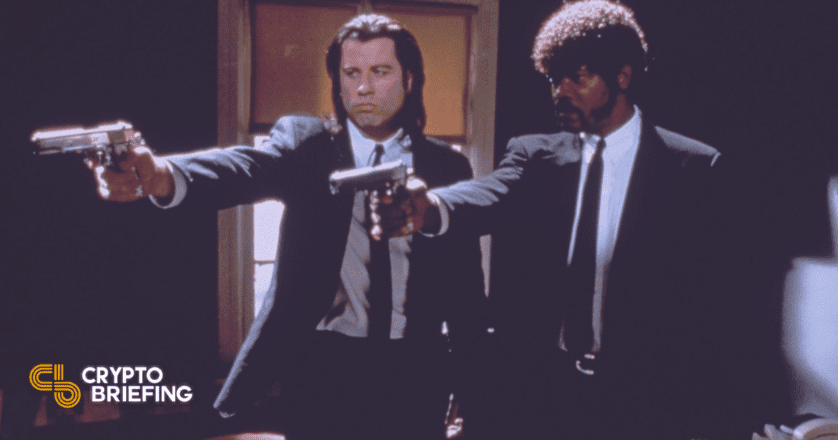By Bagehot
ABOUT half-way through “Jaws”, Steven Spielberg’s 1975 blockbuster, Sheriff Brody (Roy Schneider) finally catches sight of the giant shark that has been wreaking havoc in the high seas off the New England coast. Horrified and awe-struck, but still holding onto his cigarette, he rushes into his boat’s cabin and tells his ship mate (Robert Shaw) that “you’re going to need a bigger boat”. You only had to spend a few hours at the Labour Party’s annual conference in Brighton to realise that the Tories are going to need a bigger boat if they are to escape from being gobbled up by Jeremy Corbyn’s resurgent Labour Party.
I haven’t seen so much positive political energy since Barack Obama fired up the Democratic base in 2008 with his (retrospectively banal) slogans about “hope and change” and “yes we can”. The Labour Conference is bigger than ever before: 13,000 delegates have signed up and hundreds had to be turned away. The Brighton Metropole, the conference’s main hotel, is seething with people. The mood is jubilant: Labour Party activists parade up and down the sea front as if they are walking on air. Everybody knows who the real victors of last June’s election were. And everybody knows that it is only a matter of time before the Labour Party is once more in Downing Street—and that this time it will be the real Labour Party rather than Tony Blair’s watered-down compromise.
I turned up at a Jeremy Corbyn event in the Metropole on Sunday evening fully expecting to be disappointed (he was only “scheduled” to speak which is Conference speak for we invited him but he didn’t reply) or at the very least to be kept waiting. But at exactly the appointed hour there was the man himself, looking much younger than his 68 years, a thin man in a conference that has more than its fair share of elderly fat men. The room was electric with excitement. People hollered and cheered—and then began to sing “ooh Jeremy Corbyn” which is about as boring a song as “The Red Flag” is rousing. Mr Corbyn is a dull performer in Parliament and an even duller one at official functions. But when confronted with a crowd of the faithful he lights up (and also incidentally displays some of the vanity that must have kept him going through decades in the political wilderness).
Mr Corbyn divided the world into two camps with well-practised relish: the few and the many, the rich and the poor, the people who tell you what to do and the people who give you a helping hand. He railed against people who have gorged themselves on society’s collective wealth to a degree that is nothing short of obscene. He championed the cause of every oppressed group imaginable:workers, women, minorities, LGBT people, the disabled, vegetarians, cyclists and refugees, particularly refugee children. He not only claimed that the Labour Party was responsible for delivering almost every progressive political reform possible—votes for women, the welfare state, the National Health Service—he also insisted that the Tory party was plotting to take all these things away
Much of this was self-evident nonsense: the Conservative Party is being led by its second female leader while the Labour Party has both a male leader and a male deputy-leader (Tom Watson). But the Corbynistas cheered him to the rafters nonetheless. They were particularly keen on two arguments. The first was the pledge to do something about the housing crisis. Mr Corbyn repeatedly referred proudly to the Labour manifesto, which he said was constructed in just two weeks, but added that Labour is strengthening and reinforcing its manifesto, and is focusing particularly on housing. Mentions of increasing the supply of social housing and dealing with the “insecurity” of the rental sector were met with whoops of joy. The second was his pledge to create a new type of politics which engaged ordinary people in an endless round of activism. Mr Corbyn argued that politics should not be regarded as a “mechanistic process” that is dominated by elites. It should be a popular movement that gives people a chance to discover their identities in collective action and expresses itself in art works as much as policy documents. “Welcome to the Labour Party”, Mr Corbyn said, singling out the young people who have joined Labour in such numbers in recent months. “Welcome to the Labour family. Welcome to the Labour community”.
Mr Corbyn is to be congratulated for making politics popular once again: the Labour Party has not only greatly increased its membership over the past couple of years to 500,000 but has refocused British politics on massive structural problems such as generational inequality and the housing crisis. But I couldn’t help being concerned by his enthusiasm for demonising his enemies and romanticising collective action. The 20th century has seen all too many leaders who have divided the world into good and evil and encouraged people to suppress their egos in the collective struggle. Some rich people have certainly behaved like pigs in fixing markets in their own favour or stuffing their own mouths with silver. But Mr Corbyn’s relish in demonising anybody on the other side is unnerving.
Leaving the love-fest I overheard two female activists who looked as if they were in their twenties chatting to each other. “It’s like going to a concert….It’s like seeing your favourite band”, said one. “I even got a picture of him”. The other reported that Laura Kuenssberg had been forced to leave. “She’s that douchebag from the BBC…She’s a staunch Tory”. Enthusiasm is all very well—but not if it means treating a political leader like a pop star or that a highly professional female reporter has been prevented from doing her job.
Note: This article have been indexed to our site. We do not claim legitimacy, ownership or copyright of any of the content above. To see the article at original source Click Here













